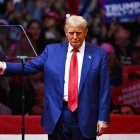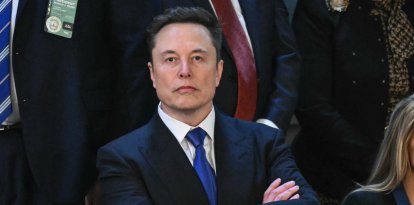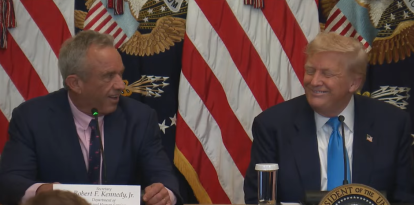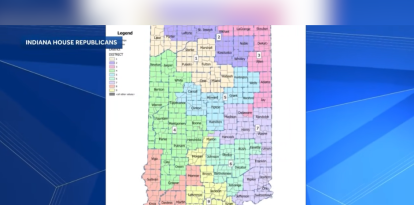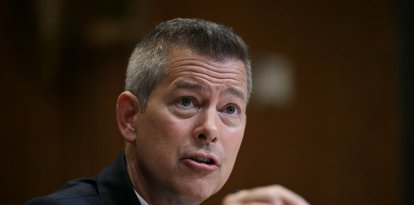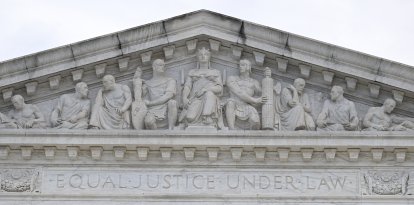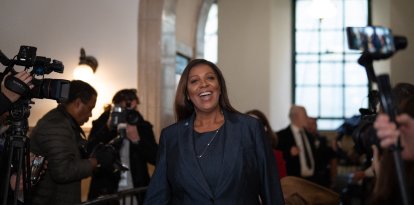Puerto Rico status referendum: A rigged, futile process?
Puerto Rican voters will vote on a non-binding referendum on Nov. 5 that proposes to abandon its status as a U.S. territory.

2017 referendum in Puerto Rico
The renewed political focus on Puerto Rico has highlighted in recent hours a controversial referendum that will appear on the island's ballots on the same day as the 2024 presidential election. Its critics charge that it is a Democratic ploy to win seats in Congress.
At stake is its status as a U.S. territory that has defined Puerto Rico's government since 1898. Puerto Rican voters, who do not vote for president, senator or representatives, do elect a non-voting delegate and local leaders. This year, they will also vote for the seventh time whether to change the island's status.

Politics
26 attorneys general join Virginia's appeal to SCOTUS to prevent non-citizens from voting
Williams Perdomo
In reality, Puerto Ricans can only vote to change the island's status: the options do not include maintaining the status quo. The three options available are independence, sovereignty in free association with the United States and statehood.
The three options are as follows, as explained in the executive order from Governor Pedro Pierluisi, who established the guidelines for the referendum:
- Independence: Puerto Rico would become a sovereign nation, with its own Constitution. It would establish its own laws in all areas, ending its legal bond with the United States.
- Sovereignty in free association: Puerto Rico would become a sovereign nation, with its own Constitution. But it would not sever its ties with the U.S., but would negotiate Articles of Free Association to define the boundaries of this relationship.
- Statehood: Puerto Rico would become the 51st state. It would have representation in Congress just like other states.
Those who claim the vote is rigged point out that the options include neither maintaining free association status nor, apparently, the "none of the above" alternative (which won in a previous vote). Independence is widely unpopular, they note, and sovereignty in free association is a vague and unconstitutional proposal. There remains, therefore, only one option.
"Euphemisms aside, Puerto Rico is a colony of the United States," writes professor Christina D. Ponsa-Kraus in an article in favor of the vote, retorting the Democratic argument. Resorting to euphemisms, however, she points out the flaw in the choices: "The PRSA (Puerto Rico Status Act) is a federal bill that would finally offer Puerto Ricans a choice among their non-colonial options—statehood, independence, and free association under international law—and provide for a transition to the one that wins." The only option is change.
"The irony is that the Democrats, while draping themselves in the rhetoric of decolonization, are behaving rather like colonizers," notes Coleman Hughes, a writer of Puerto Rican descent, in The Free Press. "What else can you call an underhanded attempt to force a territory into the union against the will of its residents?"
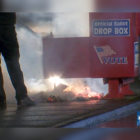
Politics
Hundreds of ballots were damaged in Vancouver and Portland after an attack on ballot boxes
Emmanuel Alejandro Rondón
Seven referenda... Useless?
1967, 1993, 1998, 2012, 2017, 2020, and now 2024. All those years, according to Ballotpedia, Puerto Ricans expressed their opinion on the status of their territory at the ballot box, albeit under different circumstances and with different choices.
"Should Puerto Rico be immediately admitted into the Union as a state?" was asked in 2020. 52% voted yes, 47% no. In addition to questioning the narrow margin, the specialized site gathers that the "no" vote implied the formation of a commission to negotiate independence or free association. Again, there was no option to maintain the existing status.
In 1967, the winning option was to remain as a territory, with more than 60% of the vote, as well as in 1993 with about 49%. Both of these raise the question of why the option is not available in this election cycle. In 1998 "none of the above" won.
In 2012 and 2017, the winning option was statehood, but both votes were widely questioned due to problems in the process and low turnout, respectively.
Referenda, however, are nothing more than an expression of desire. Any changes would have to be approved by the U.S. Congress. Which feeds yet another criticism: it matters little to hold vote after vote if everything is left in the hands of senators and representatives.
Criticism of the referendum
At the national level, some Republican and Democratic representatives voted in favor of the referendum. Although among the GOP’s ranks opinion is divided, Democrats, Hughes explains, believe they would win a new blue state, which would skew Congress in their favor.
Within the island territory, both the Popular Democratic Party, in favor of preserving the status quo, and the Puerto Rican Independence Party expressed opposition. Citizen Victory Movement's candidate for resident commissioner in Washington, D.C., also spoke out against the referendum in a recent interview with Metro:
"I don't even call it a consultation. It's another rigged popularity poll, poorly done and really intended to attract people to vote. It has no impact on Congress. Nobody is going to pay any attention to it in Congress. Just as they have not paid any attention to any of the previous ones. It's disrespectful to the people of Puerto Rico and a waste of money."
"Those of us who urgently want Puerto Rico’s colonial status to end must warn against efforts that, ultimately, will not lead to a productive outcome," Boricuas Unidos en la Diaspora and the CASA organization released in a statement. Among other things, they criticized the "political illusion" that a simple majority would be enough for Congress to analyze the island's status change and that the process had lacked transparency and the participation of Puerto Ricans outside the island.
In just a few days, Boricuas will show if they agree.





